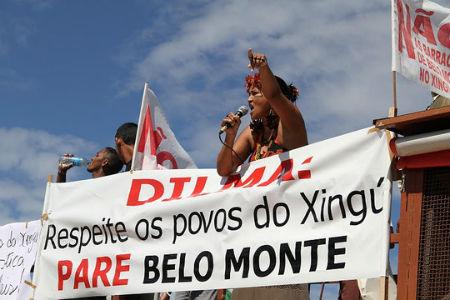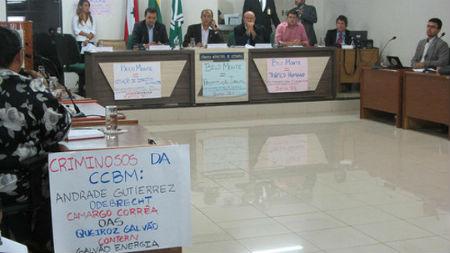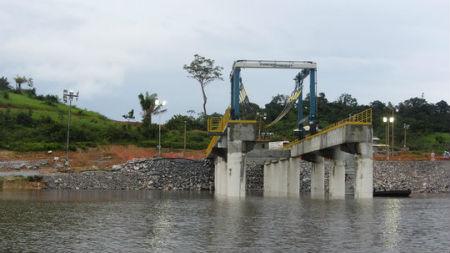By María José Veramendi Villa, senior attorney, AIDA, @MaJoVeramendi 

We won’t give up.
This is AIDA’s motto for defending the rights of local Brazilians who face forced relocation as construction of the Belo Monte mega-dam moves forward in the Amazon.
The Brazilian government is building the world’s third-largest dam on the Xingu River under the guise of meeting a growing demand for energy. One of the costs, according to official estimates, is the displacement of at least 20,000 people from indigenous and river communities. Their traditional lands will be flooded and their ways of life destroyed.
But the people of the Xingu won’t be drowned quietly. They have organized to stand up for their rights.
The government is so determined that it has hired spies to infiltrate the opposition movement. It has deployed public security forces to patrol the construction site and break up protests. And it plans to beef up controls in June and July, when global attention will focus on Brazil for the World Cup.
Now Brazil’s government wants to criminalize protests against infrastructure projects, even if the affected communities are only voicing their dismay that they’ve been denied a basic constitutional and internationally recognized right to have a say in what happens.
Throw in the towel?
Not us. With your donations, AIDA is working to ensure that the people of the Xingu will be assured the right to be heard, to be consulted, and to live in a healthy environment.
One focus of AIDA’s strategy is to tackle a legal instrument called Suspension of Security, which Brazil established during a military dictatorship. Higher courts have used it several times to “protect the public interest” by overruling lower courts, which, in the case of Belo Monte, have halted dam construction until the government consults and provides adequate protection and compensation for affected communities. 
At the sessions of the United Nations Human Rights Council in Geneva on March 10, AIDA’s attorney Alexandre Sampaio will explain how Brazil is using Suspension of Security to violate the human rights of Brazil’s indigenous peoples. Additionally, we are advocating, through the preparation and presentation of legal briefs, for the Supreme Court to reject Suspension of Security and determine that the project was illegal from the beginning. We have also asked the Inter-American Commission on Human Rights to analyze the human rights implications of Suspension of Security.
AIDA provides all of its work free of charge to the people we help. Your donations through Global Giving provide the critical support that allows AIDA’s attorneys to pursue this challenging and important legal work, which empowers Amazon communities to defend their rights.
Please consider making another gift in support of this work, helping in our “never-say-never” fight against Belo Monte.
With great appreciation,
The AIDA Team